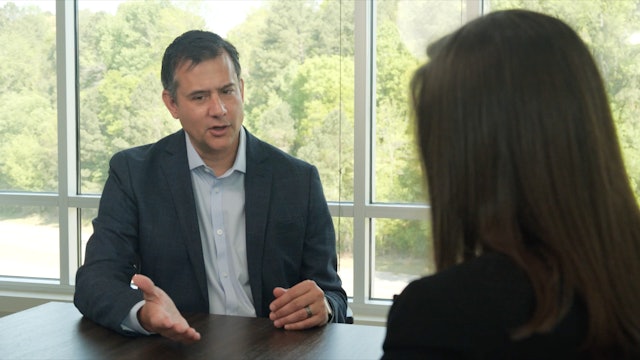-
How to Lead Better Meetings
By being more intentional about how you lead meetings, you will boost engagement and create a stronger company culture. Offering guidance, promoting inclusion, and calling out interruptions during meetings are a few great ways to unlock workplace excellence.
-
How to Incorporate Inclusive Leadership Education into Your Strategy Process
Learn why it's critical and how to incorporate inclusive leadership training into your leadership strategy.
-
Genuine v. Performative: How to Be Sure Your DEI Efforts Are Authentic
Many organizations worry about whether their DEI initiatives are performative, rather than genuine. How can you be sure your stated commitment is supported with action and progress? These five steps will help ensure that you are acting with authenticity and intention.
-
10 Things You Can Do Today to Interrupt a Toxic Culture
If you find yourself stuck in a toxic workplace, here are 10 things you can do to interrupt the negativity and make way for a more supportive, encouraging, and positive company culture. You don’t need to be in leadership to kickstart positive change. Every employee can make a difference.
-
How to Give Feedback Inclusively
As companies strive to be more inclusive, it’s common for managers to wonder about the best way to give employee feedback. In this example video, learn about best practices for providing inclusive feedback to colleagues and employees.
-
Maximizing Leadership Impact: Harnessing the Influence of Clarifying Questions
As a self-aware leader, you understand that ongoing learning through self-reflection, study, and feedback is necessary for continued growth and exceptional performance. But to create a truly exceptional organization, it’s critical to foster self-awareness and continuous personal improvement withi...
-
Practice and Preparation are Critical for Effective Communication
Inclusive leaders speak with clarity, authenticity, and purpose. Learn how to plan your communication for maximum impact by taking into account potential questions, objections, or alternate perspectives that may come up during the conversation.
-
DEI is Against My Religious Beliefs
In this video, we explore how to respond to individuals who believe that diversity, equity, and inclusion (DEI) goes against their religious beliefs. Learn valuable insights on how to navigate these conversations in a respectful and constructive manner. DEI is about fostering a more inclusive and...
-
Best Practices for Inclusion of Hindu Employees
An important step to ensuring the long-term success of your business is creating an inclusive, supportive environment for all employees. Here are a few steps you can take to be more inclusive of Hindu employees.
-
The Importance of Self-Awareness as an Inclusive Leader
Hear a first-hand story of the power of getting feedback and gaining self-awareness as a leader. For the full webinar, visit
https://www.gotostage.com/channel/22238eff15284e69847a9bb5243d7217/recording/746f6112c93746bc8631d2e83163526f/watch?source=CHANNEL -
What is Psychological Safety?
Psychological safety describes the feeling of being able to show yourself fully without fear of consequences to your social life or career. This concept plays an important role in the workplace, where psychological safety — or a lack thereof — can make or break a team’s performance.
-
Once You Recruit a Diverse Team of Board Members, How Do You Retain Them?
You've put in the effort to recruit and attain a diverse board of directors. But how do you get them to stay? Learn how to ensure diverse talent feels valued.
-
How to Practice Active Inclusion
Recognize your role as a DEI champion to practice and promote inclusion in tangible ways on a daily basis. Learn the action steps to take and the questions to ask yourself to ensure you stay on track as a DEI leader, practitioner, and advocate.
-
How to Talk About Your Organization’s Imperfect DEI Record
No matter where your company is on its unique DEI journey, it’s important to communicate properly with employees, customers, and other stakeholders — especially when it comes to areas where your DEI record has been flawed.
-
How to Give Better Feedback
Knowing how to give great feedback is key to building a strong team and a strong organization: one where employees feel valued and engaged. By being intentional, direct, and honest, you create a healthy work environment where everyone knows they are encouraged and expected to grow.
-
The Value of Lived Experience
Lived experience is the idea that people bring deep value and insight to organizations based on the factors that make them distinct. Different perspectives merge profit and purpose by utilizing and learning from people’s unique viewpoints.
-
DEI is Threatening My Position at Work
Is DEI threatening your position at work or is it increasing competition? The goal of diversity, equity, and inclusion (DEI) is to create an environment where everyone has the opportunity to succeed at work. Discover how to respond effectively when faced with the statement “DEI is threatening my ...
-
How Employees Should Seek Out Relationships with Leaders
Hear from a C-suite leader on how employees can form authentic, beneficial relationships with senior leaders.
-
Importance of Relationship Building at Work from the Leader's POV
Learn why leaders must build good relationships with their team and some strategies to do so.
-
How Can Leaders Navigate Their Biases When Managing a Hybrid Work Environment?
Learn why leaders need to mitigate biases associated with hybrid and remote work and the steps to take to do so.
-
Culture Shock: Navigating Ideological Differences Between Your Employees
Ideological differences between coworkers can create rifts in the workplace. However, there are ways of navigating them with kindness and understanding. In this video, we discuss some of these tactics.
-
How To Respond to Employee Complaints
In this video, learn how to respond to employee complaints as a leader in your organization. It’s important to show genuine respect and concern, as well as to respond to all complaints in a timely manner.
-
Consistency: The Cornerstone of Reliable Leadership
A key facet in inspiring confidence and building trust is consistency. Being a consistent leader means doing what you say you will do each and every time, while also being fair and accurate in your actions. Here are several actionable tips you can use to become a consistent leader.
-
Bob Osmond on Intentionality and Transparency
Listen to Bob Osmond speak about why being an intentional and transparent leader leads to greater results. For the full webinar, visit
https://www.gotostage.com/channel/22238eff15284e69847a9bb5243d7217/recording/746f6112c93746bc8631d2e83163526f/watch?source=CHANNEL


























